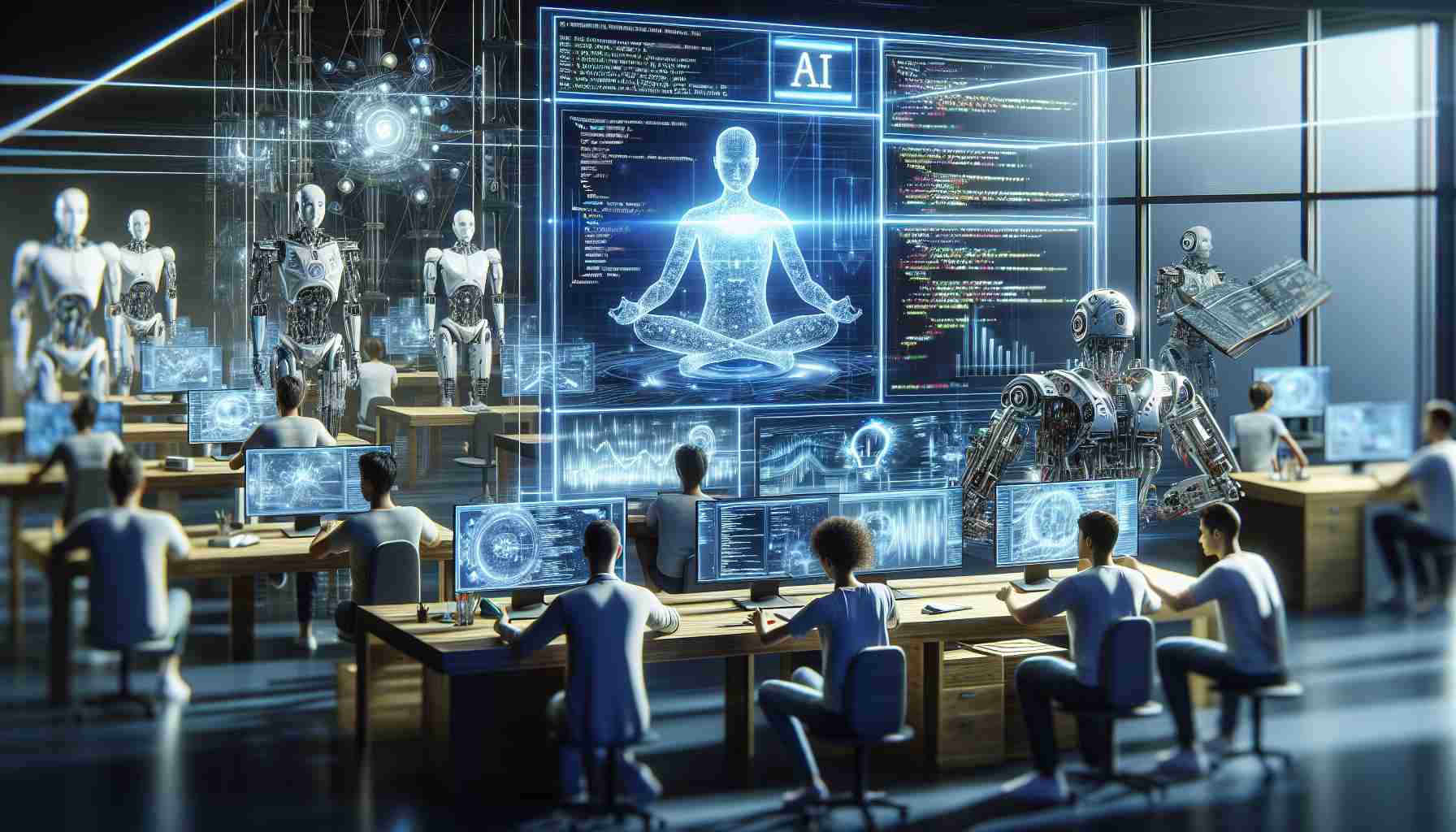In today’s digital age, it is more important than ever to equip our children with the knowledge and skills to thrive in an increasingly tech-driven world. As such, educators are constantly seeking innovative ways to introduce complex concepts such as Artificial Intelligence (AI) to students of all ages.
The Australian Curriculum, Assessment and Reporting Authority (ACARA) has recently unveiled a groundbreaking resource that aims to teach children as young as five about AI. This resource takes a unique approach by encouraging students to imagine themselves as robots, enabling them to explore the intricacies of AI in a fun and engaging way.
The lessons, designed for students from Pre-primary to Year 10, include various educational activities that cover a wide range of AI-related topics. These activities incorporate the use of tools like the controversial ChatGPT, which has sparked debates surrounding its ethical implications.
With the introduction of this resource, teachers now have a valuable tool at their disposal to introduce AI concepts in an accessible manner. By allowing students to adopt the persona of a robot, they can gain a deeper understanding of how AI works and its potential impact on society.
FAQs
What is Artificial Intelligence (AI)?
Artificial Intelligence refers to the simulation of human intelligence in machines, allowing them to perform tasks that typically require human intelligence, such as learning, problem-solving, and decision-making.
What is ChatGPT?
ChatGPT is an AI-powered language model developed by OpenAI. It generates human-like text responses based on input prompts, enabling natural language interactions with AI systems.
Why is it important to teach children about AI?
Teaching children about AI is crucial in today’s technology-driven world as it helps them develop a foundational understanding of this powerful technology and its potential implications. It also equips them with the skills necessary to navigate and contribute to a future heavily influenced by AI.
How does the resource benefit teachers?
The resource provided by ACARA offers teachers a structured framework and engaging activities to introduce AI concepts effectively. By incorporating imaginative play and real-life examples, teachers can cultivate curiosity and foster a deeper comprehension of AI among their students.
As we look towards the future, it is clear that AI will continue to shape various aspects of our lives. By equipping our young learners with a solid understanding of AI, we empower them to harness its potential while navigating the ethical considerations that arise in its development and application.
Sources:
ACARA
In today’s digital age, the field of Artificial Intelligence (AI) is rapidly growing and evolving. According to market forecasts, the global AI market is expected to reach $190.61 billion by 2025, with a CAGR of 36.6% during the forecast period (source: MarketsandMarkets). This growth is driven by various factors, including increasing investments in AI technologies, advancements in data analytics, and the need for automation in various industries.
AI has found applications in numerous sectors, including healthcare, finance, retail, manufacturing, and transportation. In healthcare, AI is being used for medical diagnosis, drug discovery, and personalized treatment plans. In finance, AI algorithms are employed for fraud detection, risk assessment, and algorithmic trading. In retail, AI powers recommendation systems, chatbots, and inventory management. These are just a few examples of how AI is transforming industries across the globe.
However, along with the immense potential of AI, there are also concerns and challenges that need to be addressed. One major issue is the ethical implications of AI. As AI systems become more powerful and capable of making autonomous decisions, questions arise about accountability, bias, privacy, and job displacement. Ensuring that AI is developed and used responsibly is crucial to creating a positive impact on society.
Moreover, there is a growing need for skilled professionals in the field of AI. As AI technology becomes more pervasive, there is a shortage of individuals with the necessary expertise to develop, implement, and manage AI systems. Addressing this skill gap requires investing in AI education and training programs, especially at the school level.
The resource provided by ACARA, which teaches children about AI, is a step in the right direction. By introducing AI concepts at a young age, students can develop a foundational understanding of this technology and its potential implications. This prepares them for a future where AI will play an increasingly prominent role in various aspects of their lives.
By equipping the next generation with AI knowledge and skills, we can ensure that they are ready to navigate and contribute to a world heavily influenced by AI. It also enables them to actively participate in shaping the future of AI, addressing the ethical concerns and leveraging its potential for the benefit of humanity.
For more information on AI and its applications, you can visit the website of the Australian Curriculum, Assessment and Reporting Authority (ACARA) at acara.edu.au.
The source of the article is from the blog enp.gr

